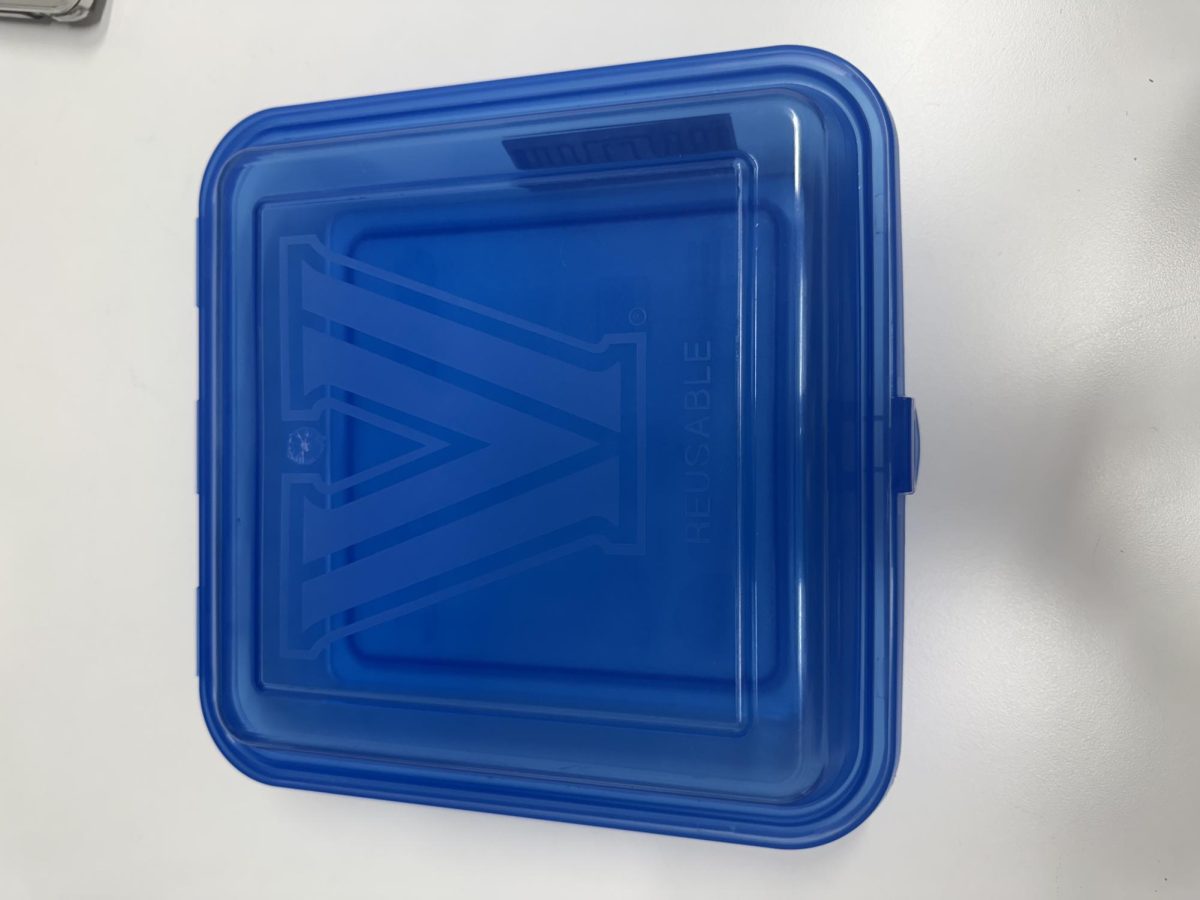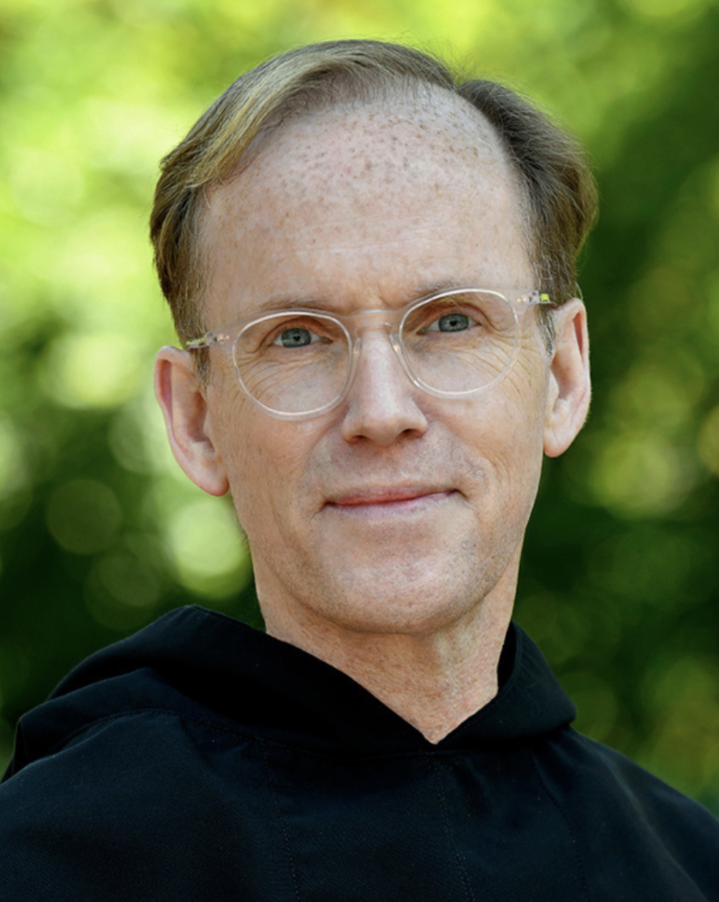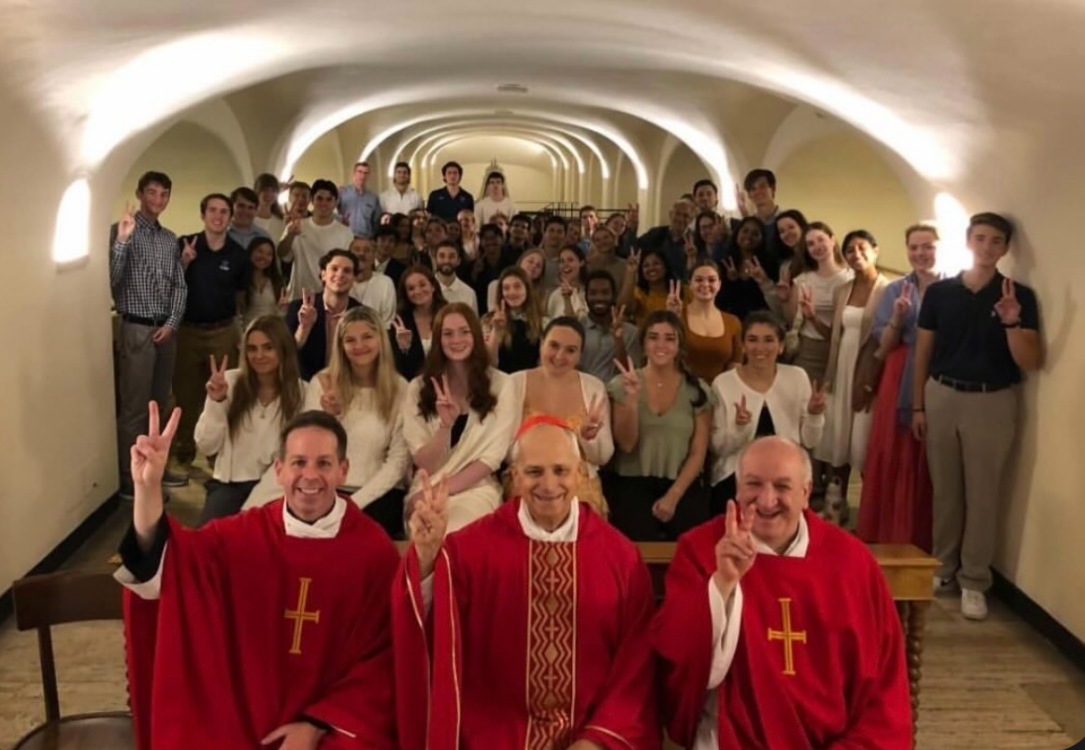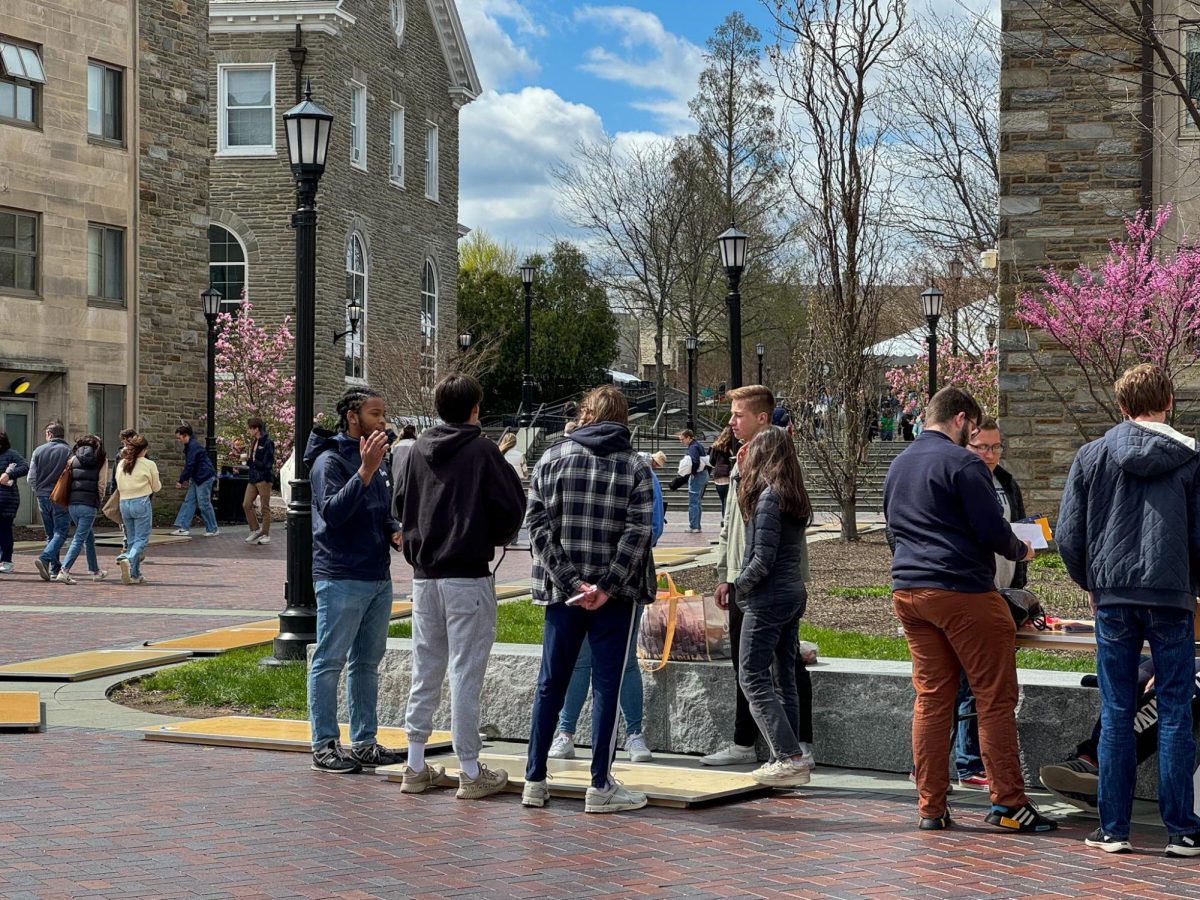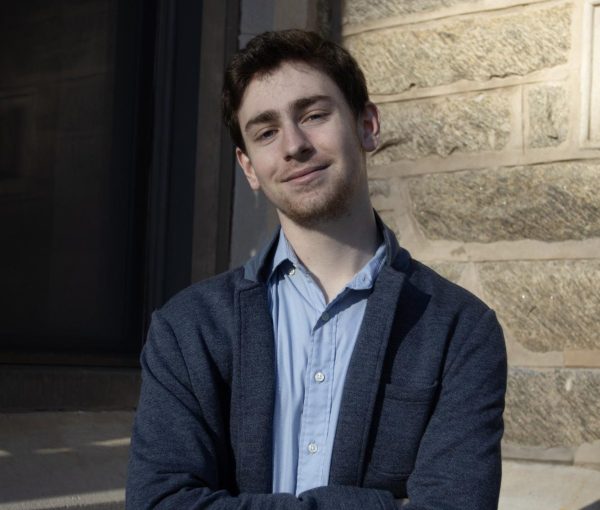Recently, Villanova University took another step toward its sustainability goal by introducing reusable takeout boxes. It aims to reduce on-campus food waste and promote an environmentally conscious dining experience.
In the current spring roll-out, buffet-style locations like Donohue and Dougherty will offer the boxes. After this semester, the potential for it to expand to all dining locations in the future is a strong possibility, including the Connelly Center which at this time, is still using paper to-go boxes.
According to Executive Director of Dining Services Andrew Camuso, the program is designed for efficiency and student ease. Villanova students can access the program through the GrubHub app upon entering a dining hall and return it in quick fashion.
“You just click it when you wanna take it, you’ll scan it,” Camuso said. “And then, when you return it, [this] will go through the dish machine and it’ll pick up the return through the QR code, so you don’t really have to worry about it.”
If a student forgets to return their container, they will receive a reminder text. Unlike other schools that have instituted similar policies, Villanova will not fine or levy actions of punishment against those if they forget to return the container within the three-day period.
The Student Sustainability Committee backed the decision to transition to reusable takeout boxes. The committee holds meetings to lead new sustainability and advocacy initiatives on campus; and works closely with the Office of the President, Mission and Ministry, Waste and Recycling and Sustainability. Emma Spangler, a junior and Executive Chair of the committee, explained that before the COVID-19 pandemic, dining halls were solely dine-in. When the pandemic began, Dining introduced disposable utensils and takeout boxes to ensure social distancing and lower transmission rates.
“We just hit five years post-COVID,” Spangler said. “And, I think the most consistently and abundantly disposed of things I see on campus are to-go boxes and plastic utensils and cups, things that just really didn’t exist on this campus prior to 2020.”
Spangler also discussed how food waste is especially difficult to get rid of. However, Villanova’s Dining Services actively works to reduce food waste by using biodigesters in some dining halls. She is hopeful that the reusable containers will improve the issue.
Despite the setback, Spangler still shares in the vision of making Villanova a sustainable institution. One that aims to become carbon neutral by 2050. Camuso also asserts that Villanova is determined to reach a zero-waste goal.
“Our goal, it’s an aggressive goal,” Camuso said. “But, when we get to the Cabrini opening, these are all you’re gonna see.”
Even with the anticipated mixed reaction, some Villanova students have already formed favorable opinions about the new program.
“I think that it takes maybe four minutes extra, and you just bring it right back,” freshman Kelsey Therrien said. “You don’t even really have to interact with anybody to do it. They’re nice, sturdy containers. And, yeah, I think that it’s nice that we can all come together to help the environment a little bit every meal.”
Some meanwhile, like freshman Leyla Dickinson, wished certain aspects of the program were a little different and preferred that each student had more freedom with additional responsibility added on.
“I think it’s just a little unreasonable to have to bring them back,” Dickinson said. “I feel like if you want to have reusable containers, you should give one to each student and have them just bring it every time and wash it on their own terms. Otherwise, I feel like the other containers were just easier to handle.”
Spangler acknowledged and anticipated the student population’s potential apprehension about the change. But at the same time, she also sees the great value that this change can have.
“I think a lot of times, people see new change as something really scary, and they’re opposed to it initially,” Spangler said. “But it is that change that really drives, you know, a meaningful future, especially since we are in a climate crisis, if we don’t do anything about these issues, they’re just going to compound and make it even worse in the future. So that’s really what we want to try and prevent.”

